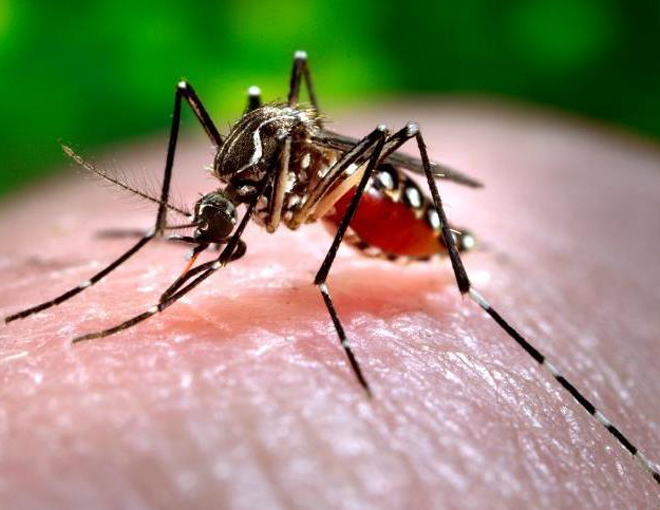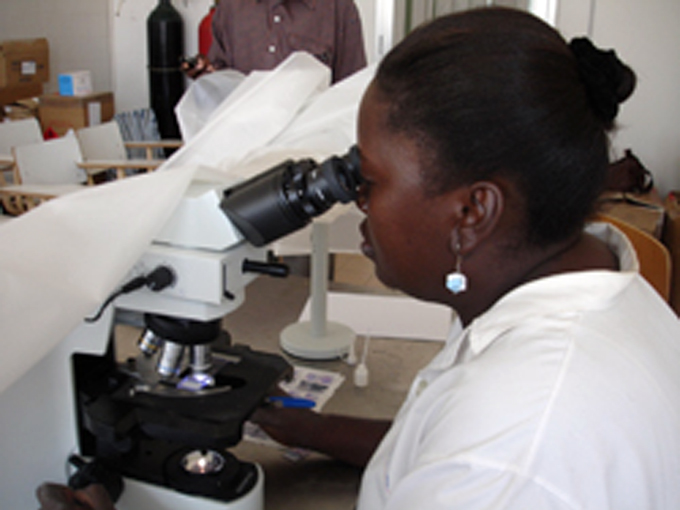Emerging Tickborne Diseases
Originally presented on . Encore presentation on .
Infections from tickborne diseases in the US are steadily increasing — and new tickborne diseases have been discovered in recent years. Ticks are vectors that can carry infectious agents such as bacteria, viruses, or parasites. When an infected tick bites a person or an animal, the tick’s saliva transmits infectious agents that can cause illness. Some ticks can transmit multiple diseases. These “co-infections” pose challenges for diagnosing, treating and preventing tickborne diseases.
The geographic ranges of ticks also are expanding. Ticks differ in their tolerance to heat, cold and aridity, making certain tick species more common than others in any given location in the United States. Different species transmit different diseases and this leads to differences in incidence of tickborne diseases by geographic region in the US.
Watch this encore session of Public Health Grand Rounds to learn about emerging tickborne diseases, treatment options, prevention strategies, and advances in diagnosing tickborne diseases.
Rates of tickborne diseases are increasing in the United States, and a tick new to the US has been discovered. Dr. Phoebe Thorpe and Dr. Gil Kersh discuss why tickborne illnesses are increasing and how to prevent tick bites.
Learn more
https://www.cdc.gov/ticks/index.html
Dr. Phoebe Thorpe and Dr. Bobbi Pritt discuss the problem of emerging tickborne diseases. Find out about the types of ticks in your area and the types of diseases a tick bite can transmit. Learn the ABCs of how to prevent tick bites and what to do if a tick bites you. Tick bites can cause co-infections. Health care providers need to consider this when diagnosing and treating potential tickborne diseases. Learn about some of the treatment options and discover the important role Public Health plays in tickborne disease awareness.
- Rebecca Eisen, PhD
- Research Biologist, Bacterial Diseases Branch,
Division of Vector-Borne Diseases
National Center for Emerging and Zoonotic Infectious Diseases, CDC
"Expanding Diversity and Distribution of Tickborne Diseases"
- Christopher D. Paddock, MD
- Medical Officer, Rickettsial Zoonoses Branch,
Division of Vector-Borne Diseases
National Center for Emerging and Zoonotic Infectious Diseases, CDC
"Tickborne Spotted Fevers — Old and New"
- Gregory D. Ebel, ScD
- Associate Professor, Department of Microbiology Immunology, and Pathology
Director, Arthropod-Borne and Infectious Diseases Laboratory
College of Veterinary Medicine and Biological Sciences
Colorado State University
"Tickborne Viruses: Emerging Public Health Concern"
- Bobbi S. Pritt, MD, MSc, DTM&H
- Director, Clinical Parasitology Laboratory
Co-Director, Vector-borne Diseases Laboratory Services
Professor of Pathology and Laboratory Medicine
Division of Clinical Microbiology
Mayo Clinic
"Advances in Diagnosing Tickborne Diseases"
- John Iskander, MD, MPH
- Scientific Director
- Phoebe Thorpe, MD, MPH
- Deputy Scientific Director
- Susan Laird, MSN, RN
- Communications Director
Get notified about the latest updates from Public Health Grand Rounds right in your inbox by setting up an alert today!
Get notified about the latest updates from Public Health Grand Rounds right in your inbox by setting up an alert today!Sign Up
Get notified about the latest updates from Public Health Grand Rounds right in your inbox by setting up an alert today!

Two types of mosquitoes are responsible for dengue, chikungunya, yellow fever, and Zika viruses. There are currently no licensed available vaccines to prevent these viruses. Learn how preventing bites and controlling mosquito populations is critically important.

The global malaria eradication campaign of the mid-20th century was successful in eliminating disease in subtropical zones; however, decreased funding and support have led to resurgence. Learn about current malaria control efforts and strategies to eliminate this deadly disease.




